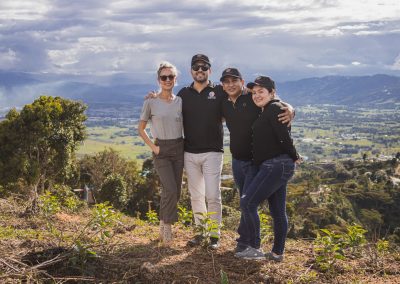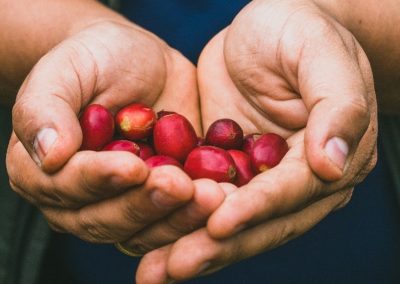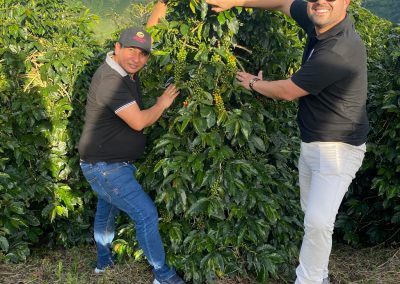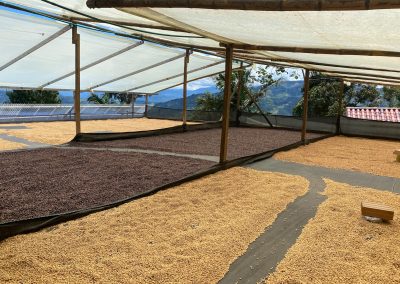Caturra Bourbon
CM Washed
Caturra Bourbon CM Washed
– Data Sheet
Region: Pitalito, Huila – Colombia
Altitude: 1.730 m.a.s.l
Farm: El Progreso
Varieties: Caturra – Bourbon
Drying: Parabolic Drying
Processing: Washed
Fermentation: Carbonic Maceration
Notes: Panela, White Chocolate, Mandarin, Orange and Honey
SCA Score: >87
Farm Info
Finca El Progreso, located in Acevedo, San Adolfo, Huila, sits at 1,730 masl and spans 23 hectares. Managed by Rodrigo Sanchez Valencia and Claudia Samboni, the farm continues a family coffee-growing tradition. It cultivates top-quality varieties like Gesha, Pink Bourbon, Pacamara, Purple Caturra, and Red Caturra, thanks to its ideal environmental conditions, with temperatures averaging 16–22°C.
The farm features advanced infrastructure, including a wet mill, drying facilities, and a cooler for cold fermentations. Rodrigo collaborates with innovators like Elkin Guzman, Jairo Ruiz, and Wbeimar Lasso to enhance experimental and varietal-specific processes.
Processing Method
Selection: Cherries are picked at 90% ripeness with 20–24° Brix and floated to remove defects.
Fermentation: Cherries ferment for 70 hours in bins with CO2 injection, transforming the mucilage colour and enhancing the sweetness and fruity notes. After pulping, the beans ferment with their juice for another 70–94 hours under CO2.
Drying: Beans are washed and dried for 18–22 days.
This 140–188-hour Carbonic Maceration process intensifies the coffee’s fragrance, acidity, and complexity.
Request Sample




